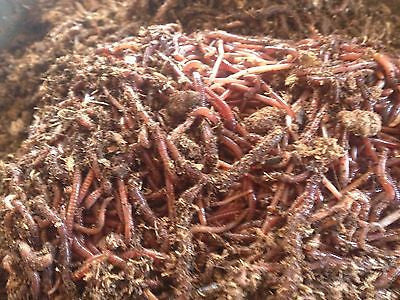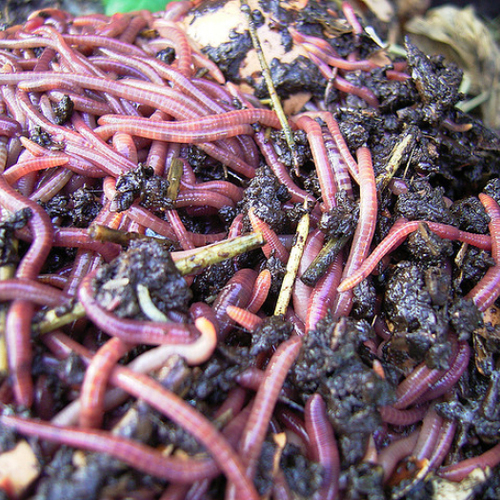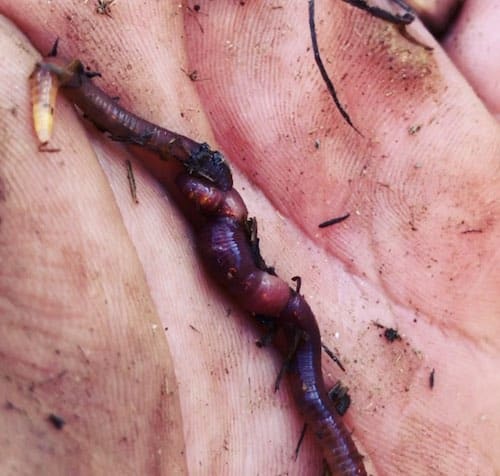Red wigglers: Enhance your compost
Red wigglers: Enhance your compost
Blog Article
Why Red Wigglers Are Vital for Organic Farming
Red wigglers play a pivotal function in natural farming, mainly via their special ability to decay natural products and improve dirt health. The extent of their effect on farming practices and soil biology raises fascinating concerns regarding the future of organic farming.
Function of Red Wigglers in Dirt Health And Wellness

Additionally, red wigglers enhance dirt structure by developing networks as they tunnel. These networks enhance oygenation and water infiltration, promoting a healthier root environment. Their task also aids in keeping optimal moisture degrees, which is crucial for healthy plant growth.

Benefits of Worm Castings
Worm castings, the nutrient-rich excrement generated by red wigglers, function as an effective change for natural farming. These spreadings are replete with crucial nutrients such as nitrogen, phosphorus, and potassium, which are crucial for plant growth. Unlike artificial fertilizers, worm spreadings launch nutrients gradually, supplying a consistent supply in time and lowering the risk of nutrient leaching and drainage.
In addition, worm spreadings boost soil structure and oygenation, promoting much healthier root systems. Their high natural issue web content boosts dampness retention, allowing plants to much better hold up against dry spell conditions. In addition, worm spreadings include advantageous microbes that support plant health and wellness by subduing pathogens and improving vitamins and mineral uptake.
The application of worm castings can lead to increased plant returns and boosted high quality of fruit and vegetables, making them a very useful source for organic farmers. Their usage also lines up with lasting farming practices, contributing to dirt fertility without the negative ecological impacts related to chemical plant foods. On the whole, the unification of worm spreadings into agricultural techniques cultivates an extra resilient and efficient environment, underscoring the importance of red wigglers in organic farming systems.

Enhancing Nutrient Cycling
(red wiggler composting worms)Nutrient cycling is an important procedure in natural farming, and the integration of red wigglers plays a crucial function in improving this cycle. These earthworms add considerably to the failure of raw material, helping with the change of complex organic materials right into less complex, more obtainable nutrients for plants. As red wigglers consume decaying natural matter, they secrete nutrient-rich Recommended Reading castings, which are including advantageous microorganisms. This microbial task further aids in the decomposition process, making certain that vital nutrients are conveniently available for plant uptake.
Furthermore, red wigglers help to speed up the mineralization of nutrients, converting them from inert forms into bioavailable forms that plants can soak up. This process is important for maintaining soil fertility and promoting healthy crop growth. The presence of red wigglers also motivates a varied dirt community, cultivating an equilibrium of nutrients that sustains numerous plant species.
Improving Dirt Framework
The enhancement of dirt structure is crucial for fostering a healthy agricultural community, and the task of red wigglers significantly adds to this improvement. These earthworms play a crucial duty in freshening the soil and producing a network of channels that facilitate water seepage and root infiltration. As they burrow with the soil, red wigglers separate compressed layers, enabling much better oxygen exchange and promoting microbial activity.
In addition, the organic issue produced from their waste, called vermicast, improves soil aggregation. This process develops steady clumps of dirt particles, enhancing soil porosity and lowering disintegration (red wigglers). The presence of red wigglers also motivates the development of beneficial fungal networks, which are crucial for nutrient uptake by plants
Promoting Sustainable Practices
Integrating red wigglers right into natural farming techniques not just improves soil wellness but likewise promotes sustainable farming techniques. These earthworms play a crucial function in vitamins and mineral biking, transforming organic waste into valuable compost that improves the dirt. By making use of red wigglers, farmers can properly minimize reliance on synthetic plant foods, consequently reducing chemical drainage and its destructive results on ecosystems.
In addition, the incorporation of red wigglers urges the practice of recycling organic products, such as kitchen area scraps and ranch waste. This waste reduction method not just decreases disposal costs yet likewise cultivates a closed-loop system where nutrients are continuously gone back to the soil (red wigglers). Such practices are important in mitigating environment adjustment, as they enhance carbon sequestration and lower greenhouse gas discharges
Moreover, red wigglers enhance water retention in the dirt, which is essential in times of dry spell. Their burrowing tasks create channels that permit water to penetrate much deeper into the ground, thus promoting efficient water usage. Inevitably, integrating red wigglers into natural farming not only supports biodiversity however likewise straightens with the concepts of sustainable agriculture, providing an all natural approach to food production.
Final Thought
In conclusion, red wigglers play a vital function in organic farming by considerably improving soil wellness and fertility. Therefore, the assimilation of red wigglers right into agricultural practices is vital for promoting sustainability and improving overall soil high quality.
Report this page